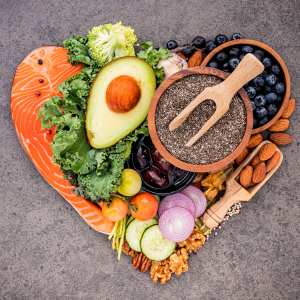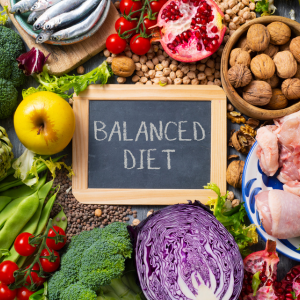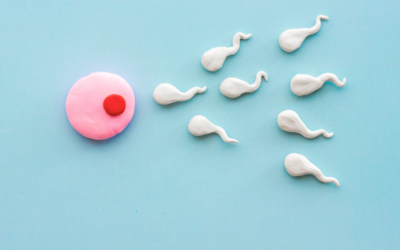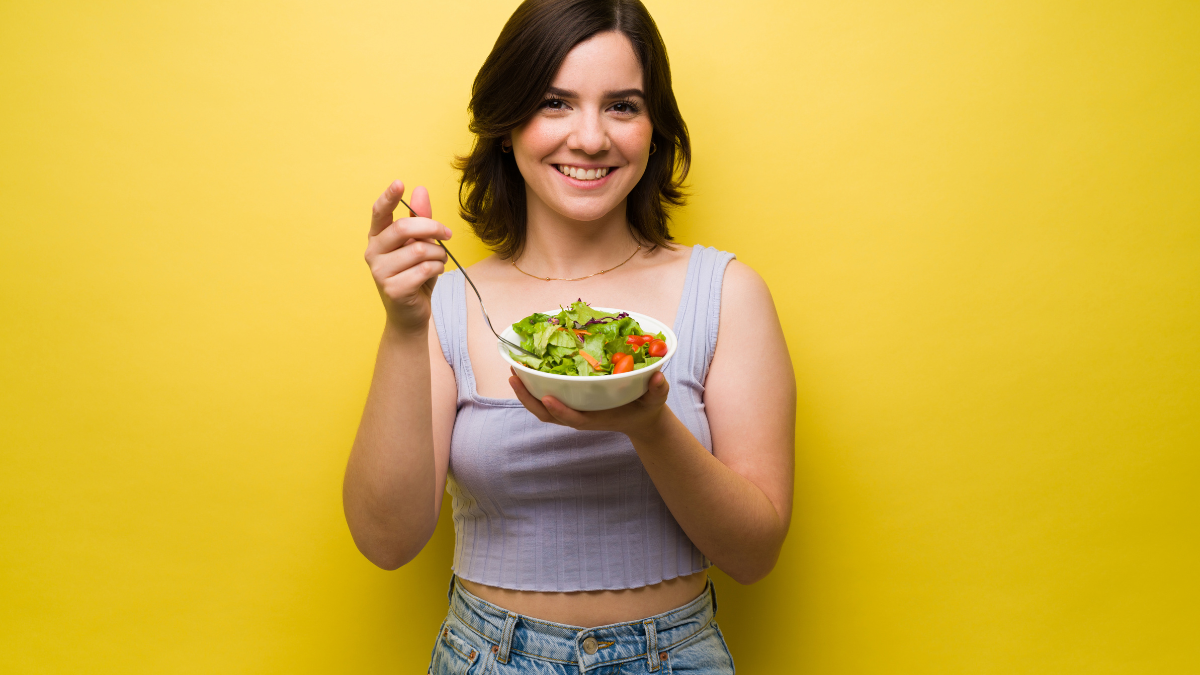A well-balanced postpartum diet is the secret to helping your body heal, restore energy, and feel healthy again after giving birth. Your body just went through something incredible, but childbirth also depletes nutrients, weakens immunity, and leaves you physically and mentally drained. That’s why it’s so important to focus on what you eat after delivery.
If you want to recover faster and feel better during your postpartum journey, these 7 postpartum diet tips will make all the difference.
Table of Contents
Why Your Postpartum Diet Matters
Your postpartum diet isn’t just about losing baby weight. It’s about healing your body, balancing your hormones, and regaining your energy. The right foods help:
- Repair muscles and tissues damaged during childbirth
- Boost your immune system to prevent illness
- Improve the quality and quantity of breast milk
- Stabilize mood and reduce postpartum depression risk
- Replenish essential nutrients lost during pregnancy

7 Postpartum Diet Tips for Faster Recovery
Ignoring your postpartum nutrition will only prolong fatigue, slow healing, and make you feel worse in the long run. These 7 tips will help you eat smarter and feel stronger.
1. Prioritize Protein for Healing and Strength
Protein is your body’s building block, and after delivery, you need it more than ever. Your postpartum body is in recovery mode, repairing tissues and muscles, and protein-rich foods can help accelerate and enhance this process.
Great protein sources for your postpartum diet:
- Eggs
- Chicken
- Fish like salmon (rich in omega-3s)
- Lentils and beans
- Greek yogurt
- Tofu and tempeh
Aim for a source of protein at every meal to help rebuild strength and maintain your energy throughout the day.
2. Include Healthy Fats for Hormonal Balance
Healthy fats are essential for stabilizing hormones, supporting your brain, and ensuring high-quality breast milk if you’re nursing. After childbirth, your hormone levels are fluctuating, and fats help regulate them naturally.
Healthy fats to include in your postpartum diet:
- Avocados
- Nuts and seeds (almonds, chia, flax)
- Olive oil
- Ghee (clarified butter, used in traditional postpartum diets)
- Fatty fish like salmon
Adding these to your meals will keep you feeling satisfied, energized, and emotionally balanced.
3. Choose Complex Carbs for Long-Lasting Energy
Forget crash diets. Your body needs carbohydrates to function well, especially now when you’re sleep-deprived and adjusting to new motherhood. Complex carbs release energy slowly, keeping your blood sugar stable and fueling you throughout the day.
Smart carb choices for your postpartum diet:
- Oats
- Brown rice
- Quinoa
- Sweet potatoes
- Whole grain breads
These foods also provide fiber to improve digestion, which often becomes sluggish after childbirth.
4. Focus on Iron and Calcium to Replenish Stores
Your iron and calcium levels are likely depleted after pregnancy and delivery, especially if you experienced significant blood loss. Both nutrients are critical for energy, bone strength, and immunity.
Iron-rich foods for your postpartum diet:
- Leafy greens (spinach, kale)
- Dried fruits (apricots, raisins)
- Red meat (in moderation)
- Lentils
Calcium-rich foods:
- Dairy (milk, yogurt, cheese)
- Fortified plant-based milk
- Tofu
- Sesame seeds
Pair iron-rich foods with vitamin C (like citrus fruits) to boost absorption.
5. Stay Hydrated for Recovery and Milk Supply
Hydration is one of the most overlooked parts of a good postpartum diet. Your body needs extra fluids to recover, flush out toxins, and produce breast milk efficiently. Even mild dehydration can lead to fatigue, headaches, and poor milk supply.
Hydrating options for your postpartum diet:
- Water (sip throughout the day)
- Coconut water
- Herbal teas (fennel, chamomile, ginger)
- Bone broth
Avoid sugary drinks and too much caffeine as they can dehydrate you further.
6. Eat Little and Often to Maintain Energy
Postpartum life is hectic, and large meals might not always fit your schedule. Eating small, frequent meals keeps your blood sugar steady and prevents exhaustion. It also ensures your body gets a steady stream of nutrients throughout the day.
Easy postpartum snacks:
- Boiled eggs
- Fruit with nut butter
- Trail mix with dried fruits and seeds
- Greek yogurt with berries
- Roasted chickpeas or makhana
Keep these snacks handy to avoid skipping meals.
7. Include Traditional Healing Foods
Different cultures have specific foods known for helping new moms heal faster. Many of these are backed by generations of wisdom and promote digestion, warmth, and nourishment.
Popular traditional foods for postpartum diets include:
- Ajwain water (carom seed water) for digestion
- Turmeric milk for inflammation
- Gondh laddoo (edible gum energy balls)
- Fenugreek and fennel seeds for milk production
- Warm broths and soups for easy digestion
Including these foods in your routine adds both nourishment and comfort during this delicate phase.

Best Foods to Eat in Your Postpartum Diet
Here’s a simple list to guide you when shopping or meal planning for your postpartum diet:
Healing Foods
- Bone broth (rich in collagen and minerals)
- Warm, easy-to-digest soups
- Stews with plenty of vegetables and protein
Energy-Boosting Snacks
- Dates stuffed with almond butter
- Energy balls made with oats, nuts, and seeds
- Boiled eggs
- Cheese cubes with fruit
Milk-Boosting Foods (Lactation Support)
- Oatmeal
- Fenugreek seeds
- Fennel seeds
- Moringa leaves
- Carom seeds (ajwain in Indian diets)
Digestion-Friendly Foods
- Steamed vegetables
- Curd (yogurt) with probiotics
- Soaked almonds
- Rice porridge (khichdi)
What to Avoid in Your Postpartum Diet
Not everything is suitable for your delicate digestive system post-delivery. Here’s what to limit or avoid:
- Processed junk food
- Excessively spicy or oily foods
- Too much caffeine
- Sugary beverages
- Alcohol
- Highly processed carbohydrates
These can lead to bloating, constipation, and sluggish energy—all things you don’t need in the postpartum period.
Sample One-Week Postpartum Diet Meal Plan
Day 1
Breakfast: Oats with flaxseeds, berries, and almonds
Snack: A boiled egg + a banana
Lunch: Rice with lentils and sautéed greens
Snack: Dates + walnuts
Dinner: Chicken stew with carrots and potatoes
Day 2
Breakfast: Millet porridge with ghee and honey
Snack: Yogurt with a handful of seeds
Lunch: Fish curry with brown rice
Snack: Roasted chickpeas
Dinner: Vegetable soup with bone broth
Day 3
Breakfast: Scrambled eggs with spinach and toast
Snack: Smoothie with banana, oats, and peanut butter
Lunch: Quinoa salad with veggies and chicken
Snack: Almonds + dried figs
Dinner: Khichdi (rice and lentils) with ghee
Day 4
Breakfast: Ragi (finger millet) porridge with jaggery
Snack: Fresh fruit
Lunch: Vegetable curry with chapati
Snack: Makhana (fox nuts) roasted in ghee
Dinner: Moong dal soup with steamed rice
Day 5
Breakfast: Idli with coconut chutney
Snack: Buttermilk with cumin
Lunch: Paneer curry with rice
Snack: Energy ball with dates and oats
Dinner: Tomato soup with toast
Day 6
Breakfast: Poha with peanuts
Snack: Apple slices with peanut butter
Lunch: Lentil soup with quinoa
Snack: Homemade trail mix
Dinner: Grilled salmon with veggies
Day 7
Breakfast: Dalia (broken wheat) porridge
Snack: Fennel tea with a handful of raisins
Lunch: Vegetable stir fry with tofu and rice
Snack: Cheese and cucumber slices
Dinner: Chicken broth with noodles
Common Postpartum Diet Myths
There are many myths floating around about the postpartum diet. Let’s bust a few:
Myth 1: You need to eat for two.
Fact: You need balanced, nutritious meals, not double portions.
Myth 2: Certain foods cause ‘cold’ in the baby through breastmilk.
Fact: Most foods do not affect breastmilk’s temperature.’ Prioritize nutritious over superstition.
Myth 3: Avoid fruits because they cause gas.
Fact: Fresh fruits provide essential vitamins and fiber. Eat them in moderation.
Myth 4: Drink gallons of milk to boost milk supply.
Fact: Hydration matters, but milk production depends on hormones, hydration, and breastfeeding frequency, not just drinking milk.

Postpartum Diet and Mental Health
Your postpartum diet isn’t just about physical recovery. The right nutrients can help stabilize mood and reduce the risk of postpartum depression.
Nutrients that benefit your mental health:
- Omega-3 fatty acids (salmon, walnuts)
- Magnesium (spinach, pumpkin seeds)
- B vitamins (whole grains, eggs, leafy greens)
- Iron (red meat, lentils)
Including these in your postpartum diet helps regulate mood, improve sleep quality, and support mental well-being.
The Role of Postpartum Diet in Emotional Health
A good postpartum diet doesn’t just help your body recover—it supports your mental health too. Nutrient deficiencies, blood sugar crashes, and dehydration can worsen anxiety, mood swings, and even postpartum depression.
Foods that boost mood and mental well-being:
- Omega-3-rich fish
- Leafy greens
- Whole grains
- Nuts and seeds
- Fermented foods like yogurt for gut health
By eating well, you’re giving both your body and mind the fuel they need to heal and thrive.
Supplements to Consider for Your Postpartum Diet
Sometimes, food alone isn’t enough, especially if your appetite is low. Ask your doctor about supplements to complement your postpartum diet:
- Postnatal multivitamins
- Omega-3 fish oil
- Vitamin D
- Iron
- Calcium
- Probiotics
Never self-prescribe. Consult your healthcare provider before starting supplements.
Cultural Approaches to Postpartum Diet
Many cultures have time-tested traditions around postpartum diet that prioritize warming, nourishing foods.
Indian Postpartum Diet
- Ajwain water (carom seed water)
- Gondh laddoo (edible gum balls)
- Turmeric milk
- Ghee-laden foods
Chinese Postpartum Diet (Zuò Yuè Zi)
- Bone broth
- Black chicken soup
- Ginger and sesame oil-rich dishes
Western Postpartum Diet Trends
- Smoothies packed with greens and protein
- Superfoods like chia seeds and quinoa
Every tradition emphasizes warmth, easy digestion, and nutrient density—key qualities for your ideal postpartum diet.
Tips to Make Your Postpartum Diet Work for You
- Batch cook or freeze meals before delivery
- Accept help from family or hire support for cooking
- Prep snack stations around your home for easy access
- Don’t skip meals, even if you’re busy with the baby
- Listen to your body’s hunger and thirst cues
The Role of a Postpartum Diet in Weight Loss
Many moms worry about postpartum weight loss, but rushing into restrictive diets is harmful. Focus on healing first, weight later.
A well-planned postpartum diet naturally supports gradual, healthy weight loss through:
- Balanced meals
- Portion control
- Adequate protein and fiber
- Staying hydrated
- Gentle exercise after medical clearance
Forget crash diets—nourish to recover.
Common Postpartum Diet Mistakes to Avoid
- Skipping meals
- Drinking too little water
- Overeating sugary ‘comfort’ foods
- Neglecting protein
- Ignoring hunger cues
Correct these mistakes, and your postpartum diet will help you feel stronger and healthier sooner.
Frequently Asked Questions on Postpartum Diet & Recovery
1. What is the 5-5-5 Rule for Postpartum?
The 5-5-5 rule for postpartum recovery means 5 days in bed (full rest), 5 days on the bed (light movement near the bed), and 5 days around the bed (gentle activity, no exertion). This helps protect pelvic health and supports healing.
2. Which Food is Good for a Postpartum Mother?
A healthy postpartum diet includes eggs, chicken, fish, leafy greens, dried fruits, dairy, sesame seeds, lentils, beans, bone broth, and easy-to-digest warm foods that support healing and energy.
3. What is Best to Eat After Having a Baby?
Best foods for postpartum recovery include bone broth, oatmeal, lentil soup, steamed vegetables with ghee, fruits like papaya and dates, and herbal teas like ginger or fennel to support digestion and milk supply.
4. How Long Should You Rest After Giving Birth?
Ideally, rest for at least 6 weeks postpartum, with the first 40 days being most important. Follow the 5-5-5 rule to ensure gradual recovery. Proper rest combined with a nutritious postpartum diet helps speed healing.
5. What Fruits are Best for Postpartum?
Best fruits for postpartum include papaya, dates, figs, apples, and berries. These support digestion, boost energy, and promote milk supply, making them ideal for a postpartum diet.
6. What Foods Help Produce Breast Milk?
Foods that help increase breast milk include oats, fenugreek seeds, fennel seeds, moringa leaves, garlic, almonds, and ajwain water. These lactogenic foods are commonly included in a healthy postpartum diet.
7. Which Fruit is Best for Breast Milk?
Papaya is considered best for improving breast milk supply due to its enzymes and digestive support. Dates and apricots are also beneficial for boosting iron and energy in your postpartum diet.
8. Does Drinking Water Increase Breast Milk?
Yes, staying hydrated supports healthy breast milk production. Drink 8-12 cups of water daily and include hydrating options like coconut water and herbal teas in your postpartum diet.
9. Can Spicy Food Affect Breast Milk?
Spicy foods generally don’t harm breast milk quality. However, if your baby seems fussy after you eat spicy food, consider reducing it temporarily from your postpartum diet.
10. Does Banana Increase Breast Milk?
Bananas don’t directly increase milk production, but are excellent for postpartum nutrition. They provide potassium, energy, and aid digestion, making them a healthy choice in a postpartum diet.
11. What to Drink to Produce Breast Milk Fast?
Effective drinks to boost milk supply include fennel tea, fenugreek tea, moringa tea, cumin water, ajwain water, and warm turmeric milk. Staying hydrated with these helps improve milk flow as part of a good postpartum diet.
12. What to Feed Baby If No Breast Milk?
If breast milk isn’t available, consult a pediatrician for suitable alternatives like infant formula or donor breast milk from certified milk banks. Avoid giving plain cow’s milk to infants under 1 year.
13. Can I Start Dieting Immediately After Delivery?
No, it’s not recommended to follow a strict diet immediately after childbirth. Your focus should be on recovery, healing, and maintaining a balanced postpartum diet. Restricting calories too soon can affect your energy, healing process, and milk supply.
14. How Soon Can I Exercise After Giving Birth?
Light walking and pelvic floor exercises can begin as early as a few days after delivery if you feel ready. However, wait for your doctor’s approval before starting any structured workouts. Most women can resume light exercise around 6 weeks postpartum if there are no complications.
15. What Vegetables Are Good for a Postpartum Diet?
Vegetables like spinach, carrots, sweet potatoes, bottle gourd, pumpkin, beetroot, and green beans are excellent choices. They provide iron, fiber, vitamins, and support digestion, all of which are essential in a postpartum diet.
16. Should I Avoid Cold or Raw Foods Postpartum?
Many traditional postpartum diet practices recommend warm, cooked foods to support digestion and healing. While there’s no strict medical evidence, warm foods are easier to digest, especially if you feel weak. Avoid cold or raw foods if you notice they cause discomfort.
17. Can I Drink Coffee While Breastfeeding?
Yes, moderate caffeine (1-2 cups of coffee per day) is generally safe during breastfeeding. Too much caffeine can affect your baby’s sleep and make them irritable. Balance coffee intake with plenty of hydrating drinks in your postpartum diet.
18. Can I Eat Chocolate While Breastfeeding?
Yes, chocolate in moderation is fine while breastfeeding. However, too much may cause fussiness in some sensitive babies because of caffeine and theobromine. Include small treats like chocolate as part of a balanced postpartum diet.
19. What Foods Should I Avoid in a Postpartum Diet?
Avoid overly processed foods, excess sugar, junk food, deep-fried items, too much caffeine, alcohol, and carbonated beverages. These can slow healing, cause digestive issues, and affect your energy and mood negatively.
20. How Important Is Sleep in Postpartum Recovery?
Sleep is as important as your postpartum diet for recovery. Your body heals during sleep, and lack of rest affects mood, energy, and milk production. Prioritize naps and rest when the baby sleeps to support your overall health.
Final Thoughts on Postpartum Diet
Your postpartum diet is more than just meals—it’s your foundation for healing, thriving, and embracing motherhood with energy and confidence. This isn’t the time for guilt, extreme diets, or neglecting your needs.
Focus on whole, nourishing foods. Eat regularly. Hydrate well. Be kind to yourself.
A well-balanced postpartum diet helps you heal faster, feel stronger, and enjoy this beautiful new chapter in your life.







